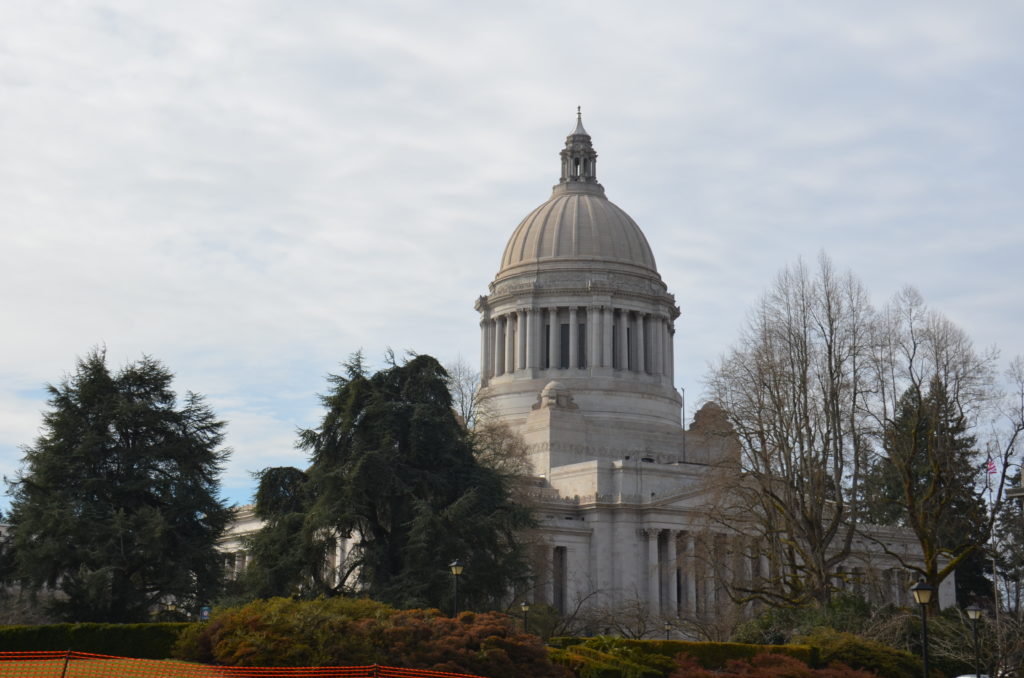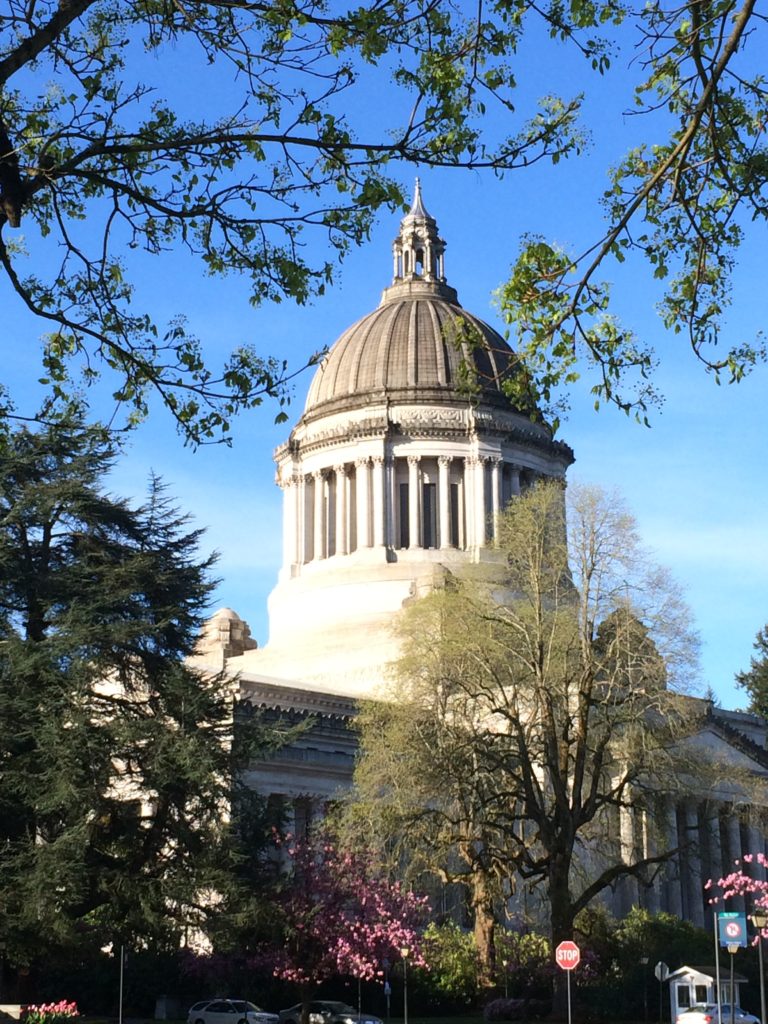“Advisory votes” are propaganda and can’t be used to “gauge public opinion”
MEDIA ADVISORY
DATE: Wedsnesday, November 3rd, 2021
TO: Washington State Reporters, Editors, and Producers
FROM: Andrew Villeneuve, Executive Director, Northwest Progressive Institute media@nwprogressive.org)
In the last fifteen hours, our team at the Northwest Progressive Institute (NPI) has seen several stories published or aired that incorrectly describe statewide “advisory votes” as a means of allowing voters to express a viewpoint on recently-enacted tax increases.
For example, a KING5 story contained this line: “Advisory Vote 37 is meant to gauge public opinion” while The Seattle Times characterized “advisory votes” as allowing “voters to sound off on tax bills passed by the Legislature.”
These characterizations are incorrect. “Advisory votes” are in reality propaganda conceived by Tim Eyman to undermine public confidence in the work of the people’s elected representatives. They aren’t meant to gauge anything, and they can’t be used to measure public opinion.
Because they are prejudicially worded, the responses are worthless. The “results” simply don’t tell us how voters truly feel about the state’s new capital gains tax on the wealthy or the other two bills the Legislature passed last session that happened to increase state revenue.
As any reputable pollster knows, asking a loaded question in public opinion research produces garbage data.
Here are three essential facts about “advisory votes” that should be included in any reporting about them:
#1: The format and wording of “advisory votes” is prejudicial and was devised by Tim Eyman
Real ballot measures (like initiatives) are represented on the ballot with titles written by the Attorney General’s office. The title is intended to be a synopsis of what the measure is and does; it is the official representation of the measure on the ballot.
However, unlike real ballot measures, “advisory votes” are not written by the Attorney General’s office. They follow a formula created by Tim Eyman which is spelled out in RCW 29A.72.283. Eyman’s formula, as mentioned, is loaded with prejudicial language:
- “The legislature imposed, without a vote of the people…” (It’s actually the Legislature’s job to make fiscal decisions on the people’s behalf.)
- “… costing $_____ (amount over ten years) … ” (Ten year cost estimates are deceptive and misleading; budgeting isn’t done in ten year increments. Any number sounds more impressive when you take it out over ten years.)
- “… for government spending.” (When the Legislature raises revenue, there’s always a reason or a purpose for its action; for example, the new state capital gains tax funds the Education Legacy Trust.)
Then there are two responses: “Repealed” and “Maintained”.
“Repealed” is shown first, because that’s the oval Eyman wants voters to fill in. “Maintained” (which is also weak, nonstandard verbiage) is shown second.
Ordinarily, “Yes” or “Approved” is shown first, and “No” or “Rejected” is shown second for a ballot measure. If you’ve covered politics for any length of time, then you’re familiar with this dichotomy. Since Eyman’s goal with “advisory votes” is to influence how people think instead of measuring public opinion, he flipped the standard dichotomy on its head, all to serve his agenda of using propaganda to generate even more propaganda for attacks on our elected representatives.
#2: Voters aren’t informed that regardless of which oval they fill in, nothing will change
Real ballot measures have binding outcomes. When an initiative passes, it results in a new law being created. When a referendum is rejected, it results in a law the Legislature previously passed being repealed. When a constitutional amendment or charter change passes, it means our plan of government is being altered.
“Advisory votes,” on the other hand, aren’t binding. 90% of voters could fill in the “Repealed” oval and no tax would be repealed.
The coverage of “advisory votes” that we’ve seen has responsibly stated that “advisory votes” are not binding.
But it’s important to go a step further when writing about “advisory votes” and explain that voters are not told that their collective responses will not change fiscal policy. There is no disclaimer anywhere. The only clue is in the heading: “Advisory Vote.”
Voters should not have to find out from news coverage that something they’re being asked to vote on isn’t going to have any impact, unlike with a real ballot measure.
#3: There is an active effort underway to repeal “advisory votes” and replace them with information that’s actually useful in the voter’s pamphlet
Legislation is currently pending in the Washington State Legislature that would not only permanently abolish “advisory votes,” but replace them with useful information about the Legislature’s recent fiscal decisions in the voter’s pamphlet. Passage of this legislation (Senate Bill 5182, prime sponsored by Senator Patty Kuderer) would remove a barrier to voting and get Tim Eyman’s anti-tax propaganda off our ballots while making the Legislature’s work more transparent.
Polling commissioned by NPI shows Washingtonians favor this legislation.
We have asked three times whether voters want to get rid of “advisory votes.” Since, as explained above, we can’t know what people really think if we ask a loaded question, we wrote a question that presents some of Tim Eyman’s arguments in favor of “advisory votes” followed by some of our arguments against them. The wording for Eyman’s arguments was sourced right out of his email missives… it’s wording he actually uses himself.
Each time we’ve asked, in three different statewide polls, we have found that a plurality of voters support repeal, while a smaller number are opposed and a significant percentage aren’t sure.
Here’s the text of our question:
QUESTION: The Washington State Legislature is considering legislation that would abolish the non-binding statewide advisory votes that are triggered whenever a bill is passed that increases state revenue. Proponents of advisory votes say they allow voters to vote on tax increases and transform the voter’s pamphlet into a tax increase report card, enabling voters to find out what Olympia is doing to them. Opponents say that advisory votes are actually costly push polls designed to confuse the public, which ought to be eliminated to save valuable tax dollars and prevent legitimate measures and candidate elections from being pushed to the back of the ballot. Do you strongly support, somewhat support, somewhat oppose, or strongly oppose abolishing non-binding advisory votes?
The last time we asked, in October of 2020, we found 42% in support of abolishing advisory votes, 22% in favor of keeping them, and 35% not sure. Net support for repeal increased to 20% from 17% in 2019. Our October 2020 survey had a sample of 610 likely 2020 voters, was conducted between October 14th and 15th for NPI by Public Policy Polling using calls to landlines and text messaging, and has a margin of error of +/- 4.0%.
We know this particular survey had a truly representative sample because every single electoral result from this survey foreshadowed the subsequent statewide results several weeks later. See our retrospective on that here.
Additional information about “advisory votes”
About Permanent Defense
Permanent Defense is a project of the Northwest Progressive Institute that protects Washington by building a first line of defense against threats to the common wealth and Constitution of the Evergreen State.
About NPI
The Northwest Progressive Institute is a regionally focused nonprofit working from Washington, Oregon, & Idaho to constructively transform our world through insightful research and imaginative advocacy. NPI was founded in 2003 and is based in Redmond, Washington.
Northwest Progressive Institute
8201 164th Avenue NE, Suite 200, Redmond, WA 98052-7615 |media@nwprogressive.org | Twitter: @nwprogressive




